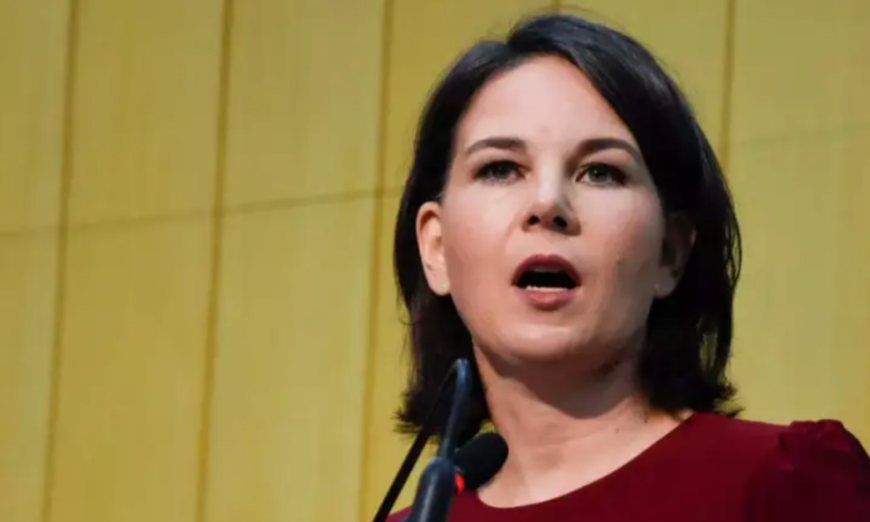German Foreign Minister Annalena Burbock made her first visit to South Asia, setting foot in Pakistan. And, as you know, she may have put it in her mouth as well, since it is a “close strategic partner” of India.
At a joint press conference with her Pakistani counterpart Bilawal Bhutto in Islamabad on Tuesday, Burbock assured reporters that the UN has a role to play in securing “human rights” in “Kashmir” and that “a constructive approach from both sides” is the only way to improve relations between Pakistan. and India.
“The foundation of the UN is that human rights are indivisible, and this matters for every region of the world. It also matters for Kashmir,” Barbock said. “And so we support the work of the United Nations also regarding the situation in Kashmir to ensure that all human rights are respected.”
Burbock pointed out that although Germany was not a member of the UN Security Council (UNSC), it offered support (on Kashmir) in bodies such as the UNHRC and others.
“We believe that a constructive approach on both sides and confidence building measures is the only way forward for improving relations between Pakistan and India. The bilateral ceasefire agreement along the Line of Control last year was a positive step. This line must be followed by additional steps. This is really the strength of different governments, if there is a provocation, that one does not react, but stands on its own (sic) and international principles,” said the first woman foreign minister of Germany.
Former Indian Ambassador to Germany Gurjit Singh said Ms Burbock’s comments seem “banal” and “clearly unprepared” as the main purpose of her visit to Pakistan was to settle the fate of ca. 60,000 Afghan refugees, about 18,600 of whom Germany agreed to provide asylum with Pakistani logistical support.
Germany has come a long way from being Jammu and Kashmir as a “disputed territory” for decades. In recent years, this earlier J&K description has been quietly changed to “union territory” on the German Foreign Office website.
A few years ago, the German Ambassador to India, set to shoot, organized a Beethoven open-air concert in Srinagar “for the people of Kashmir”: a jamboree that would not have been possible without the cooperation and permission of the Government of India.
(It is quite another matter that while the audience consisted of beautiful Delhi and Bombay residents, close friends or associates of the envoy, a curfew was imposed for the concert, and the “Kashmiris” themselves remained at home).
In 2019, just a month after India repealed Article 370 in J&K, outgoing German Ambassador Walter Lindner refrained from commenting on the matter as it was an “internal matter”.
Just last month, Foreign Minister Burbock herself met with Foreign Minister S. Jaishankar in Berlin to discuss “deepening cooperation.”
India and Germany have been “strategic partners” since 2000. Recently, Germany has also emphasized its “common interest (with India) in strengthening multilateral cooperation and promoting stability and security in the Indo-Pacific.” (Website: German Foreign Office).
It won’t matter much to the Southern Bloc that Barbock decided to drop by Pakistan rather than India for her first official visit to South Asia.
In any case, Indian diplomats will be glad that they do not have to endure the annoyance of “hyphenated visits” such as those made by many German visitors, including former chancellors who are “landing” in New Delhi or on their way to New York. Delhi, or return from Islamabad or Beijing.
But there is no doubt that there will be facepalms and red faces in Berlin: most of all among those who consider the 42-year-old Burbock inexperienced, and at the same time unsuitable for anything in the light of both the Ukrainian crisis and the growing threat from the outside, China is one of the most important portfolios of the European superpower.

